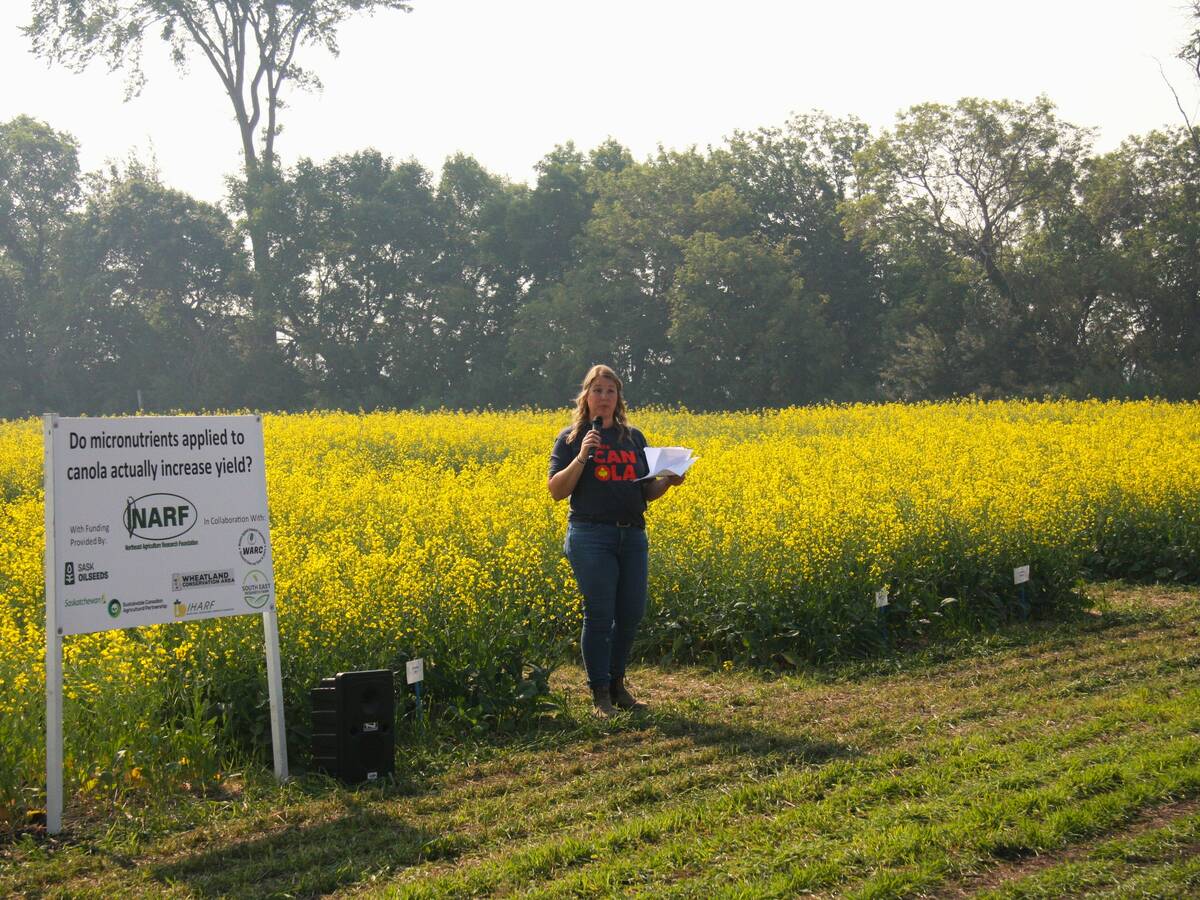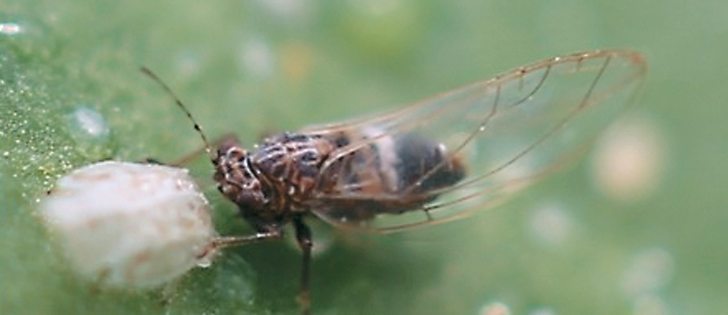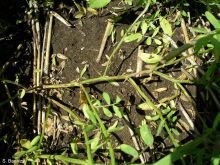The disease has caused huge potato losses in the U.S., but the insect hasn’t crossed into Canada yet
Negative results are a good thing for Canadian potato growers and entomologist and researcher Dan Johnson.
The University of Lethbridge scientist is the lead on a project to watch for the potato psyllid, a tiny insect that can carry a pathogen causing a harmful condition called zebra chip in potatoes.
Zebra chip causes black stripes in potato tubers, making them unusable, and also affects tomatoes and peppers. The disease has caused massive potato losses in the United States and has spread into Oregon, Washington and Idaho.
Read Also

Micronutrient applications compared in canola
In recent years, new products have been claiming to provide micronutrients and are being marketed to producers who want a boost.
A potato psyllid and zebra chip monitoring network in Canada, established in 2013, has found no sign of the psyllid and no sign of zebra chip.
Hence the negative results from a project Johnson describes as bare bones, using minimal staff and a cross-Canada volunteer network.
“Is it worth all this time and effort? I suppose in the end it is,” he said.
“We haven’t proven that it’s not here, but what we’ve proven is that if you look at this moderate level of effort, you can’t find it, so there can’t be very many of them. So it’s either not here yet or extremely rare. I hope this isn’t the year that changes.”
There are many types of psyllids, but only the potato psyllid carries the zebra chip pathogen. And not every potato psyllid is a carrier, as many tests in the United States have shown.
Psyllids, which are one to two millimetres long and resemble tiny cicadas, can travel on wind, plant material and potentially vehicles that travel through zebra chip pathogen-infected areas, said Johnson.
“I have the feeling that we’re going to end up with a situation in which they’re either arriving on weather, unusual weather or being shipped in on live plants, and then there’ll be little hot spots that can be contained.”
An invasion involving small pockets would be preferable to other scenarios.
“The worst scenario would be if they poured in, became established, nobody noticed them in time and then they just became a regular pest every year. We don’t want that,” he said.
That is essentially what happened in the U.S. Pacific Northwest.
“In theory, we’ll catch it when it arrives, but the problem is we’re spread pretty thin. We do a much lower level of sampling than they do in the U.S.”
The monitoring network involves shipping yellow sticky cards to people across Canada where potatoes and tomatoes are grown. The traps are erected in fields at crop height, left for a week and shipped back to Johnson.
The cards are then analyzed for the presence of potato psyllids.
Collaborators on the project include potato expert Larry Kawchuk of Agriculture Canada in Leth-bridge and insect expert Scott Meers of Alberta Agriculture in Brooks.
Funding is provided through Growing Forward 2, Potato Growers of Alberta and the Canadian Horticultural Council. The volunteer network comprises about 50 people across Canada. Some 1,000 cards per year have been submitted for analysis.
Johnson said a wider network would provide better monitoring, but project funds are limited.
“It is a bare bones project. That’s fine. That’s what we need at the moment, perhaps, until we find it. When we do, then I think everybody will chip in together,” Johnson said.
“For now, we’re just in monitoring mode.… It’s a small project but it’s geographically large. If (potato psyllids) come in at hundreds of places, if the weather’s right … then it will become management and we’ll be looking at pesticides that could be quickly registered for them, biocontrol agents and so on.”
Johnson said he would welcome more participation in the monitoring project from farmers, gardeners and others. He will ship sticky cards to those who want them, at least until the money runs out.
He can be contacted at dan.johnson@uleth.ca.
















